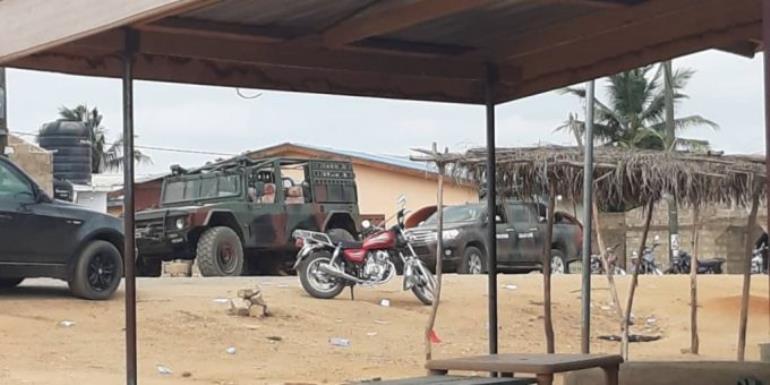New Narcotic Control Act introduces alternatives to prison sentences for ‘wee smokers’

The workshop, organized by the Perfector of Sentiments Foundation (POS Foundation), the Judicial Training Institute, and the Open Society Initiative for West Africa (OSIWA), aimed to equip participants with knowledge about the alternative provisions for drug possession and use offenses, particularly concerning Indian hemp.
According to a DailyGuide report, the event witnessed the participation of regional police and prison commanders, as well as past and present director generals of the Narcotic Control Commission.
Notable attendees included Justice Tanko Amadu of the Supreme Court, who also serves as the Director of the Judicial Training Institute, Kenneth Adu-Amanfeh, the Director General of the Narcotics Control Commission, and Akrasi Sarpong, the former boss of NACOB. Jonathan Osei Owusu, the Executive Director of POS Foundation, and His Lordship Justice Patrick Baiye, the Supervising High Court judge for the Bono and Ahafo regions, were also present, with Justice Baiye chairing the training workshop.
Jonathan Osei Owusu, the Executive Director of POS Foundation, emphasized the importance of sensitizing the judiciary to the new law and its implementation.
He highlighted that the Act 1019 aims to approach drug use, possession, and dependence as public health and safety issues rather than focusing solely on law enforcement, incarceration, punishment, and repression.
Under the previous law, PNDC Law 236, individuals found guilty of possession and use of minor narcotic drugs faced a prison sentence of 10 years. However, the new law has replaced the prison term with a fine ranging between 200 and 500 penalty units, amounting to GH¢2,400 and GH¢6,000.
This significant change offers trial courts alternatives to custodial sentences, deviating from the practices of the previous regime. The implementation of the new law sets an essential example for drug policy reform advocacy in West Africa, where countries such as Kenya and Nigeria have already embraced pretrial measures to reduce prison populations.
Explaining the need for the amendment, Mr. Osei Owusu pointed out that drug policies and enforcement have resulted in more harm than reform, given the increasing prevalence of drug use and trafficking over the years despite the punitive punishments in place.
The training workshop aimed to equip judges and magistrates with the knowledge and tools to effectively handle offenses under the new act, taking into consideration the health aspects of drug abusers and providing them with appropriate rehabilitation or imposing fines.
Addressing the participants, Kenneth Adu-Amanfeh, the Director General of the Narcotics Control Commission, stressed that drug use should be viewed as a public health issue rather than a crime. He expressed relief that the new law enables judges and magistrates to prioritize human rights and public health safety.
Adu-Amanfeh emphasized that individuals with minor drug use and dependence require assistance rather than imprisonment, urging the courts to refer them to rehabilitation centers.
A welcoming response came from DDP William Kula, the Bono Regional Commander of the Ghana Prison Service, who highlighted that the new act would help decongest the prisons.
Currently, the Sunyani Prison, originally designed for 450 inmates, houses 915 individuals, resulting in overcrowding of over 100%. Notably, 31 inmates are serving sentences ranging from 15 years and below for narcotic drug use, while six others are awaiting sentencing on remand. Kula recognized the change in the new law as a step in the right direction.
In his closing remarks, Justice Patrick Baiye described the training as highly engaging and commended the organizers for their exceptional work.
Source: www.ghanaweb.com




